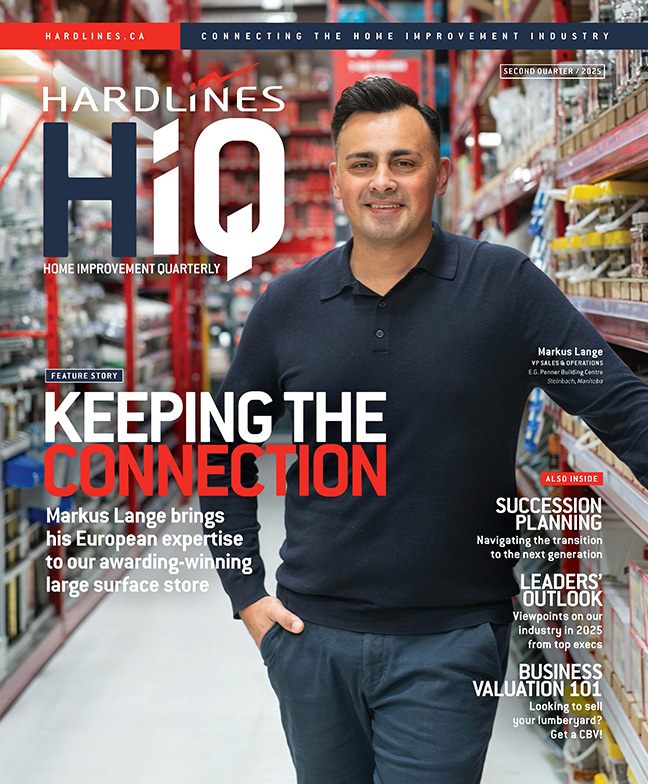 Building materials suppliers found themselves in the eye of the storm when the supply chain worldwide began deteriorating during Covid. That disruption affected everything from the products in the warehouse to the people handling those products.
Building materials suppliers found themselves in the eye of the storm when the supply chain worldwide began deteriorating during Covid. That disruption affected everything from the products in the warehouse to the people handling those products.
Each distributor developed its own strategies to cope, and CanWel Building Materials was no exception. We spoke recently with Marc Seguin, president of CanWel, who shared his thoughts on staffing strategy before and after Covid.
“What did we do at CanWel to offset some of the supply chain crunch? First of all, for internal resources, we kept our full staff in our offices and operations. We put the right protocols in place to protect our people, but we decided that we needed the resources because our customers were relying on us,” Seguin says. “Some of our competitors decided to let people go for a period of time or operate with a skeleton staff. I think our approach helped us to provide better service levels.”
Seguin believes home improvement was hit harder than other industries. For example, supply was affected directly by staffing, “because all of our warehouses are staffed by people that work in demanding conditions. They are at the lower end of the salary grid many times. And it has created quite a bit of turnover. And to this day it’s still a huge challenge to find people. He points out that a lot of people migrated from urban centres during Covid, putting further strain on recruiting people.
Not only was it hard to find new people, it became difficult to replace the workers who left. “We were able to hire a lot of new resources—but we operated with less staff, so people had to double their efforts,” Seguin says.
“We were fortunate to have long-time employees that are good workers. They work hard. They are dedicated. They love our company and we have good dynamics. But we need to resource ourselves better and it’s going to remain a challenge for quite a while.”
These labour issues are not going to sort themselves out in the near term, Seguin believes, even with immigration. “No, I think we’re not out of this for quite a while. Because it’s a structural and systemic problem.” He is calling on the entire retail home improvement industry to become “more progressive” to make this sector more attractive to potential employees, “like hybrid work solutions, improved working conditions, better benefit packages. We are something of a primary sector. I think there are solutions we will all have to adopt to some degree.”




































